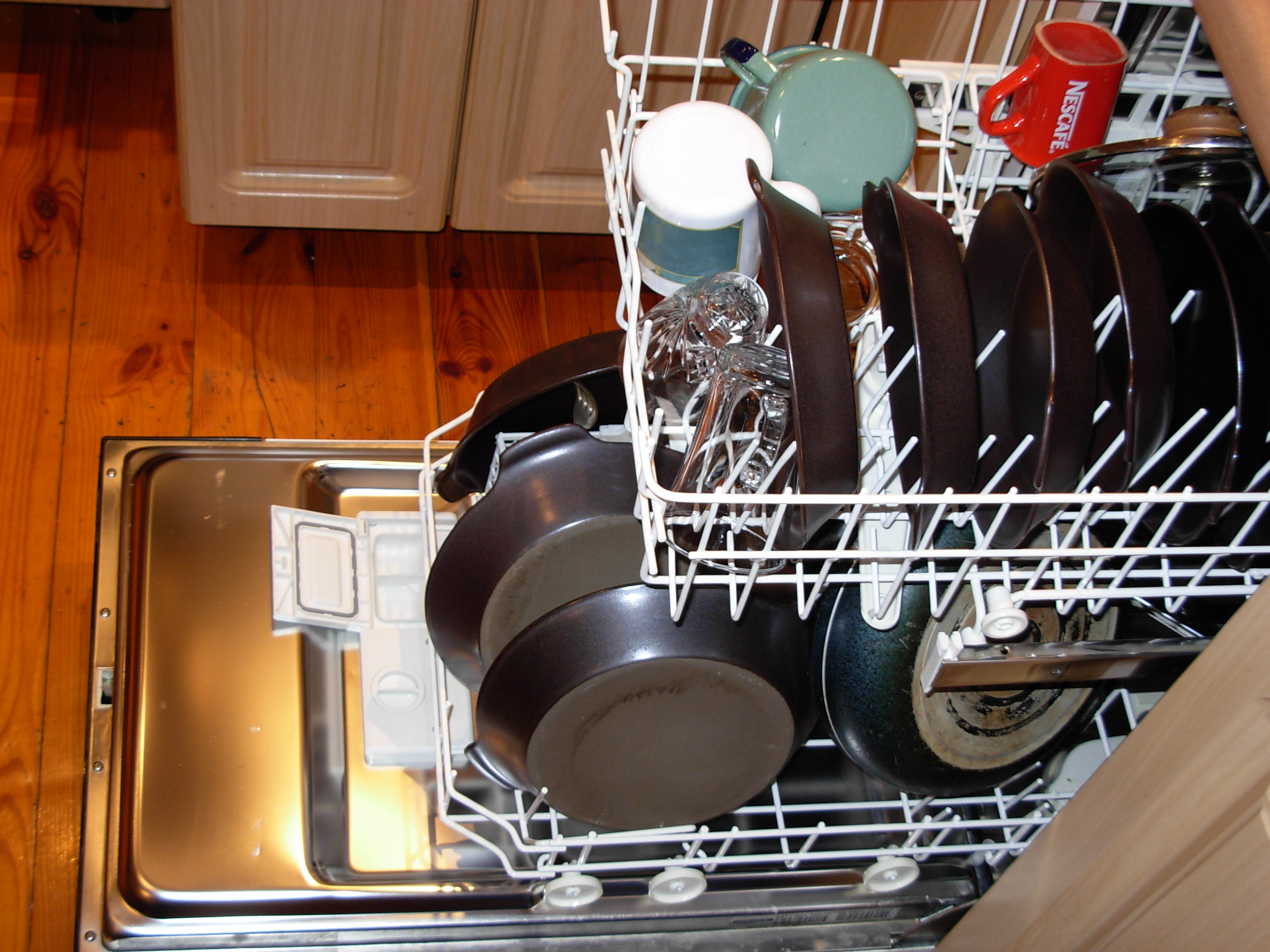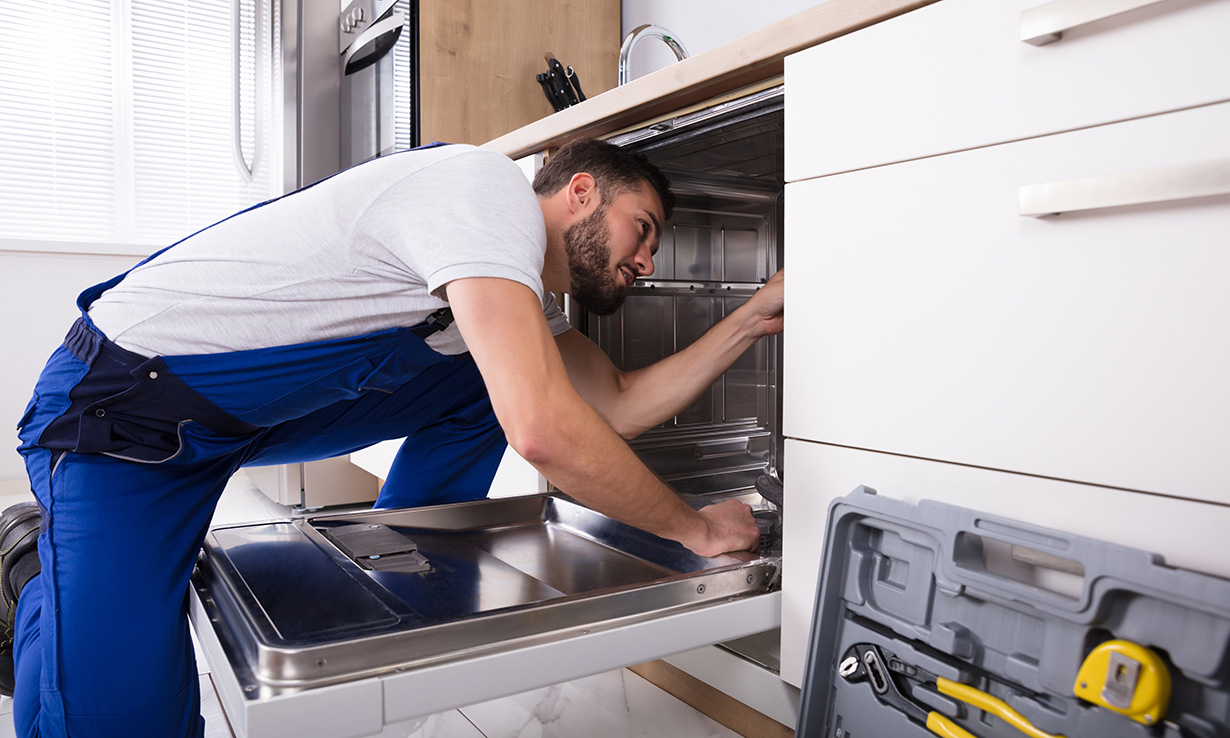Every person has his or her own opinion on the subject of The Most Common Dishwasher Problems.

Having your dish washer break down or breakdown can be a big deal and also cause some pain at home. Dish washers are devices that we make use of to clean recipes and flatwares automatically to conserve us the stress of manually doing it.
Like every other equipment that eases human initiative, dishwashers can break down and create some fault eventually in time. There are numerous mistakes your dishwasher might create, and also while a few of them can be fixed by changing some parts or fixing them, various other more serious flaws will certainly require that you get a brand-new dishwasher.
This short article will certainly recognize a few typical mistakes your dishwasher might create to prevent its overall performance as well as just how these mistakes can be solved.
Typical Mistakes
Usual dish washer faults might vary from small to major ones. Depending on the extent, you will either need the solutions of specialist plumbings to take care of or change it.
Several of one of the most common faults include:
Leaking Dish washer
This is most likely one of the most day-to-day dishwasher problem, as well as the bright side is that it is easy to determine. Leakages take place due to several reasons, and also the leaks can bungle your cooking area. Common reasons for dishwasher leaks consist of;
Bad-Smelling Dishwasher
This is one more usual dish washer problem, and it is generally brought on by food debris or grease remaining in the equipment. In this case, search for these fragments, take them out and do the dishes without any recipes inside the equipment. Wash the filter completely. That will certainly aid get rid of the negative scent. Guarantee that you eliminate every food bit from your dishes prior to moving it to the machine in the future.
Lack of ability to Drain
Often you may discover a huge quantity of water left in your tub after a clean. That is most likely a water drainage issue. You can either examine the drainpipe hose pipe for problems or obstructions. When in doubt, call a professional to have it checked and also fixed.
Does unclean properly
If your recipes and flatwares come out of the dishwashing machine and still look filthy or dirty, your spray arms may be a trouble. In a lot of cases, the spray arms can get obstructed, and it will call for a quick clean or a substitute to work successfully once more.
Conclusion
A few of these usual dishwashing machine mistakes can be fixed quickly in the house, but sometimes, the mistakes could be enormous as well as might call for the attention of experts. If you stay in Rochester, Syracuse, and other parts of America, allowed the specialists correctly identify what could be incorrect with your dishwasher and extend a remedy.
We also set up dishwashing machines if you simply bought a new one or intend to replace your very own. With our years of experience in the industry, we are sure to provide you the most effective feasible solutions.
8 Most Common Dishwasher Problems & How to Fix Them
My Dishwasher Isn't Draining
If your dishwasher isn't draining properly, you may be having an issue with your dishwasher's drainage system. This can be caused by a variety of issues:
Clogged drain: The dishwasher's drain may be clogged with food particles or other debris. Malfunctioning pump: The dishwasher's pump is responsible for moving water through the system and out of the drain. If it's damaged or not working correctly, it could cause a drainage failure. Broken or clogged hose: The dishwasher's drain hose may be broken or clogged, causing water to back up in the system. How to Fix Dishwasher Not Draining
Check the drain for any blockages. A clogged or kinked hose will prevent water from properly draining out of the dishwasher. Use a plunger or a pipe snake to clear any debris that may be blocking the drain. Check the dishwasher's pump for damage or malfunction. Consult the manufacturer's manual or call a professional appliance repair service if you think the pump may be the issue. Check the drain hose for any damage or blockages. The hose should be straight and free of any debris or kinks. Check the drain pump filters for any blockages if the hose is clear, but the dishwasher is still not draining. Some dishwashers have filters that can become clogged with food particles or debris. Cleaning or replacing the filters may help resolve the issue. Run a dishwasher cycle to make sure the water is properly draining out. My Dishwasher Is Leaking
A leaking dishwasher can be frustrating. There are a few possible causes that you can investigate to try and diagnose the issue:
Inspect the dishwasher for any visible signs of damage or wear and tear. Look for cracks or holes in the door and around the rubber seal. Check the hoses and pipes connected to the dishwasher for any signs of leaking. If there is no visible damage, you may hear the sound of water dripping or the sound of the water pump running. This might mean a problem with the water inlet valve or the drain pump. You may also notice a puddle of water on the floor near the dishwasher. This could indicate a blocked drain hose or a faulty drain pump. Finally, check the seals around the door and the door for any signs of damage, wear and tear, or improper installation. If any of these issues are present, they must be fixed immediately to avoid further water damage. How to Fix a Leaky Dishwasher
Identify where the leak is coming from. The most common places for a dishwasher to leak include the door, hoses, and pump. If the leak is coming from the door, the gasket or seal may need to be replaced. If the leak is from the hose or pump, the damaged parts should be replaced with new ones. Finally, check all the connections and make sure they are secure and not leaking How to Fix a Dishwasher That Won't Start
The perfect remedy for a dishwasher that won't start is confirming all the components are in perfect working order and that the wiring is in good condition. Next, inspect the motor and replace it if necessary.
If these steps do not resolve the problem, contact a professional appliance repair technician to diagnose and fix the issue.
Conclusion
Most dishwashers are reliable appliances with a long lifespan. As with all devices, checking your dishwasher regularly will help you quickly identify any issues and ensure that it is running efficiently.
And if you're in the market for a new dishwasher, don't let dishwasher problems ruin your day. Upgrade to a reliable, efficient model today! Check out our full selection of top-quality dishwashers that includes a range of styles and features to suit any budget and household needs.
https://www.coastappliances.ca/blogs/learn/common-dishwasher-problems

I'm very intrigued by Why is My Dishwasher Not Cleaning Properly? and I really hope you liked the entire blog post. Sharing is good. Helping others is fun. Many thanks for taking the time to read it.
Request An Estimate